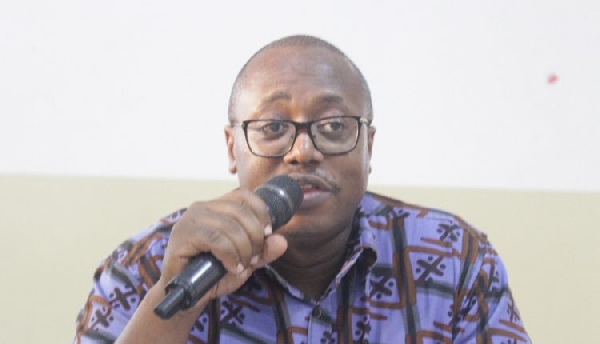Dr Kojo Pumpuni Asante, Director of Advocacy and Policy Engagement, Centre for Democratic Development (CDD) – Ghana has urged the Electoral Commission (EC) to nurture trust among the political parties to ensure that general election results are acceptable to all stakeholders.
He said building trust in the electoral processes, extending the time frame for election planning and increasing public access to key data results were necessary to improve the nation’s democratic governance.
Dr Asante gave the advice during a panel discussion on the 2022 Kenya and 2023 Nigeria general election and the lessons for Ghana ahead of the 2024 General Election.
It was important for the EC to correct the growing negative perception about the institution, which was not good for the country’s democratic development, he advised.
Dr Asante referred to the numerous legal challenges faced by both the Kenyan and Nigerian electoral management bodies, saying it would be better for Ghana’s EC to ensure the timely conclusion of its legal reforms ahead of the general election.
He explained that whatever the EC needed to do should be done early and clarified so that the stakeholders would understand and appreciate their relevance.
Dr Asante also recommended the reforming of the process of appointment to the EC Board, saying that the current method did not make it transparent and inclusive.
Dr Bright Akwetey, Executive Director, Institute of Democratic Development, Ghana (IDEG), for his part, urged the EC to set a time frame and limit for political parties to campaign for general elections.
Kenya and Nigeria, he said, had their electoral management bodies regulating the periods and duration of political campaigns.
Ghana’s lack of such measures were not helping, he noted.
“We are told that in Kenya they do 50 days for election campaigns and Nigeria does 150 days, but ours is limitless, which is not helping…. We have been pushing for a long time that we should have a campaign season and our parties should not only be about elections after elections,” he said.
He, therefore, urged the political parties not only to focus on election-related issues but innovate development-oriented policies to benefit the people.
Dr Edward Ampratwum, a representative of the United Nations Development Programme (UNDP), advised political parties to commit to dialogue, consensus building and resolving their differences with peaceful means.
They should also work with the people towards creating the desired future.
He said election was one of the major triggers of violence across the globe, having led to democratic reversals and unconstitutional changes in government, especially in Africa.
Mr Mulle Musau, Coordinator, Elections Observation Group, Kenya, stated that Ghana should have clear electoral laws, which must be adhered to by all the political parties -thus learning from both the Kenyan and Nigerian experiences.
He said the various components of the electoral processes, such as voter identification, registration and verification must be transparent and inclusive.
Ms Cynthia Mbamalu, Director of Programmes Yiaga Africa, Nigeria, emphasised that the EC should not create doubt about the electoral processes so that the outcome of the elections would be accepted by all the parties.
Source: gna.org.gh




